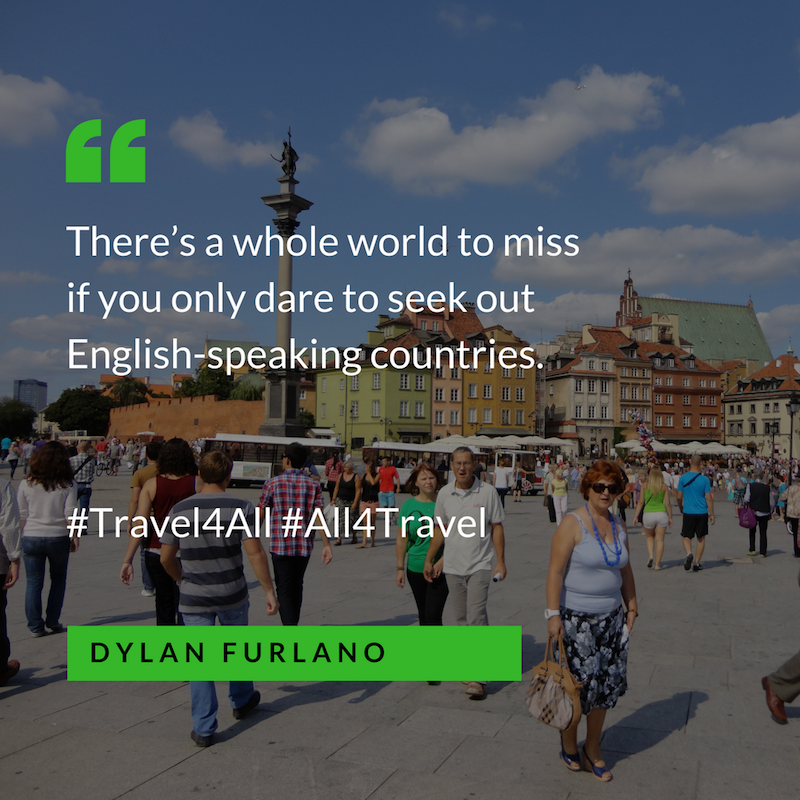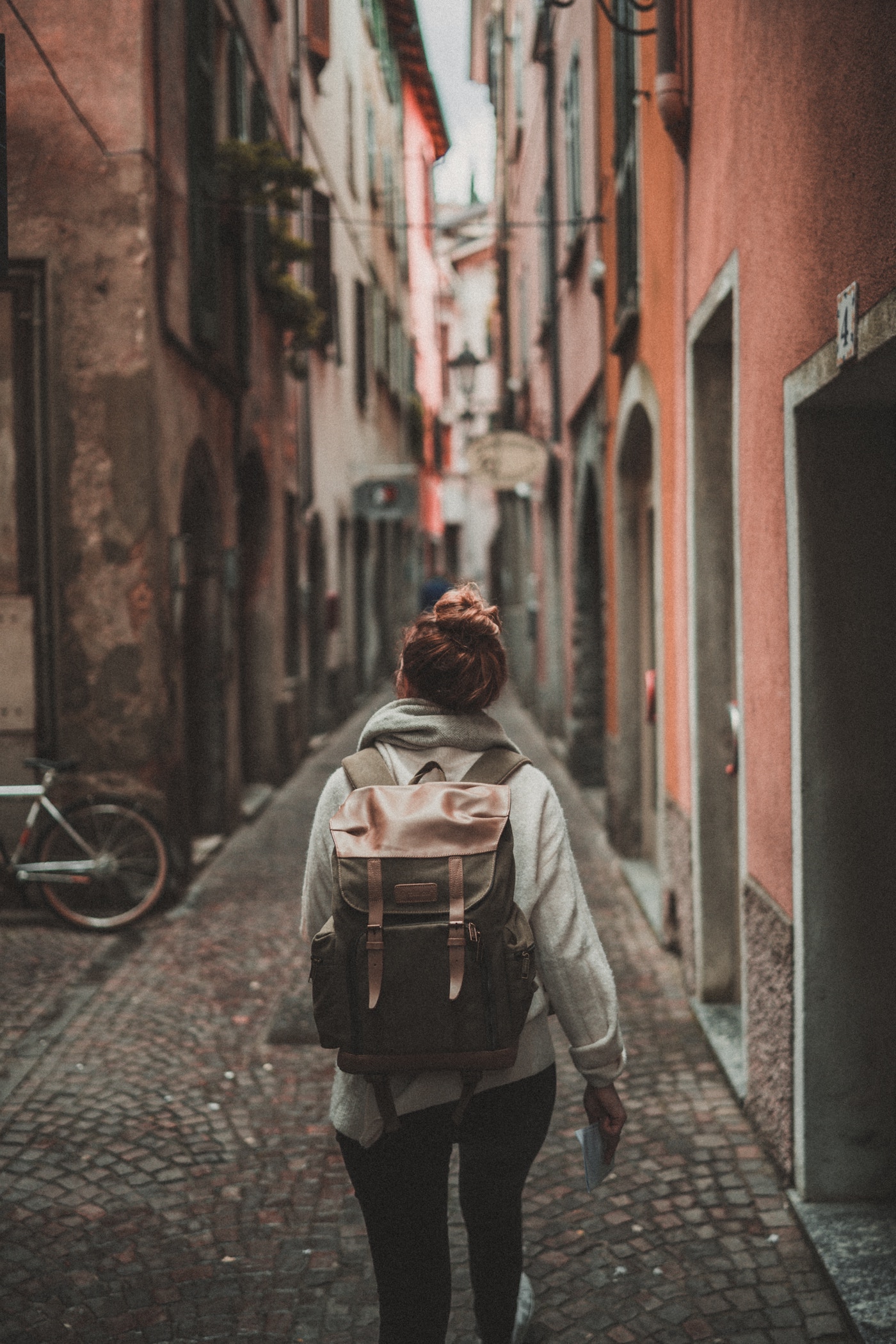
When people hear about my varied trips abroad, specifically to countries where English is not the primary language, their response is always the same – incredulous anxiety (before having traveled alone to these same countries, I probably would have reacted the same way).
There is something instantly anxiety-inducing about a lack of communication. It leaves us feeling vulnerable, with our minds scrambling to imagine the worst possible outcome. And this is only magnified if you are a woman who is traveling alone.
But, there’s a whole world to miss if you only dare to seek out English speaking countries, so let’s talk communication: the good, the bad, and the misinterpreted. If you’re planning a trip to a country where English is not the predominant language, here are four stages you will probably go through.

1. Fear
I’m not going to lie to you and say that something magical happens when your feet hit foreign soil and suddenly all your fears will fade away. They won’t. A successful international flight landing cures any of my aviation related fears (at least until the return journey), but now comes a whole new set of challenges.
Sometimes just getting out of the airport is a journey in itself. The time between landing and unlocking the door to my hotel/hostel/rental is always the most stressful for me. With my bag slung over my arm, I am most acutely aware of my newfound status as tourist and most shocked by the strange array of letters and words making necessary and commonplace signs difficult to interpret.
When this happens, I need you to stop and take a breath. Seriously. Step to the side of the bustling hallways and impatient people, and breathe. It’s ok to be afraid, but also take in the moment. You never get a second chance to have a first landing in a country.
It is something like a first date. Embrace the awkward and remember the mistakes, because you never know if this could be the beginning of a love affair with a new country.
2. Ignorance
Depending on how long you are set to stay in a country, you may stay in this stage for a good chunk of your trip.
Personally, I try to practice unending patience with tourists and travelers in my everyday life, because I know that there are plenty of times when the roles are reversed. You will get lost, go to the wrong place, do something culturally strange, and find yourself in any one of the million situations that come from plain, old unfamiliarity. When this happens, the fear mentioned in Step #1 may return.
We know how to deal with Step #1, stop and take a breath. Being calm will make any of these issues exponentially easier to solve. However, they still will require some sort of action.
The easiest thing to do is always to ask a passerby for help, but you have to be prepared for a myriad of responses. They may be rude. They may not know the answer. Or, most likely, they may not speak English.
Sometimes the universe will provide you with a kind soul who notices your look of panic, and offers to help. These are the true guardian angels of travel.
If you’re not having any luck with passersby, my go-to spot for help is always a hotel.
Hotel staff tend to speak some English and usually have plenty of maps to give out.
I’ve never unpacked a suitcase that isn’t full of paper hotel maps complete with pen markings and scrawled directions.

3. Frustration
If you’ve been in your host country long enough, there will come a point where the language barrier feels exhausting.
There have been times I’ve sat in bed wondering if eating was really worth the potentially confusing and embarrassing conversation I may have with the person at the store/restaurant/etc. Just know that this is also normal.
I’ve been certain I’ve ordered one dish, only to be served another. I’ve had staff switch to English because my attempts at the native language are so terrible that they are legitimately confused. There have been irritated cashiers, annoyed patrons, and plenty of other miscommunicated interactions in my past. Unfortunately, rude and impatience transcend language, and, even if you don’t know what they are actually saying, you’ll know how they feel about you.
What seems like the worst episode in the world, will someday become a great travel story.
I love telling people about the time I asked for cheesecake and the cashier thought I had mangled the word for coffee – it gets a laugh every time.
4. Freedom
There will also be times when the language barrier is freeing.
Nothing is more liberating that knowing that the babble around you is incomprehensible and there is nothing you can do about it. It exists in a world that you don’t need to worry about.

There is also something liberating about walking down a street and not having to worry about seeing anyone you know. Even if someone tries to talk to you, a simple smile and a shrug will usually tell them all they need to know.
Between anonymity and self-sufficiency, you will feel like you can take on the world. And, of course, you can.
As a solo, female traveler, people will instinctually try to limit your options in the name of security. While practicing regular safety skills like being alert and cautious are necessary, they are tips that I recommend to anyone, no matter who they are or where they’re going.
Traveling as a young woman in a country where I did not speak the language was one of the most formative experiences that I had in my early twenties.
Age and gender are only limiting factors if you let them be, so get out there get lost in some mistranslations.